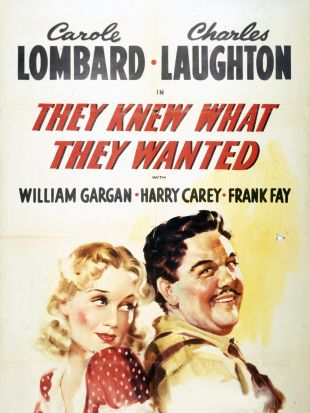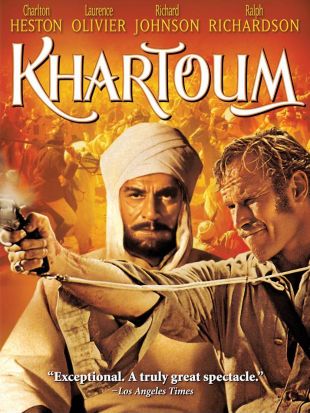Robert Ardrey was that rarity in Hollywood, a writer who beat Hollywood and its producers, moguls, and stars at their own game of amassing power, wealth, and respect. Equally comfortable dealing with literary editors such as Bennett Cerf or moguls like Darryl F. Zanuck, he also retained his credibility in the intellectual realm by authoring texts on anthropology, history, and sociology that remain widely respected decades after their publication. Born in Chicago in 1908, he was the son of Robert Leslie Ardrey, an editor and publisher, and the former Marie Haswell. He showed an interest in writing while still a boy, and in his early teens he worked on his first novel. He studied anthropology and a range of natural and social sciences at the University of Chicago, but with the encouragement of Thornton Wilder, Ardrey pursued writing as a career. He supported himself during the Great Depression of the early '30s by playing piano in various jazz clubs, working as a statistician and staff analyst for the city's personnel bureau, and lecturing on pre-Columbian civilization at the Chicago World's Fair. He also authored what he later described as an embarrassingly bad novel set among Cro-Magnon peoples, and a failed play.
Ardrey's first, fleeting taste of success as a writer came in 1934 when his play House on Fire was revised by Jed Harris, Ben Hecht, Charles MacArthur, and George Abbott into Star Spangled -- it went to Broadway in a production starring Garson Kanin, George Tobias, and Millard Mitchell, and racked up 23 performances. He saw two of his plays, How to Get Tough About It and Casey Jones, produced in 1937 and 1938, respectively (the latter done by the Group Theatre), for what turned out to be very short runs in New York. Ardrey's Thunder Rock was produced by the Group Theatre in 1939-1940 under the direction of Elia Kazan, with Myron McCormack, Luther Adler, Lee J. Cobb, Morris Carnovsky, and Frances Farmer in the cast. A topical, anti-isolationist drama, Thunder Rock was a failure in New York, closing after 23 performances, but that same year, Ardrey made his first foray to Hollywood, where he made an uncredited contribution to the movie Kitty Foyle (1940), starring Ginger Rogers.
Ardrey got his first movie credit for the screenplay of They Knew What They Wanted (1940), made at RKO. Meanwhile, Thunder Rock, which had been such a resounding failure in New York, found a profitable new life when it was transferred to the London stage, enjoying strong reviews and a good run before the German blitz and the resulting blackout crippled theatrical activity in the war-torn city. It was so successful that the rights were acquired by the writer/producer/director sibling combo of John Boulting and Roy Boulting and their Charter Films. They made it into a hugely popular, critically praised film in 1942, starring Michael Redgrave and James Mason. Thanks to its success in England, the play eventually found a new life in regional and semi-professional theater companies in the United States, and became Ardrey's biggest success in theater. By then, Ardrey had found a niche in Hollywood, working on such films as A Lady Takes a Chance (1943) at RKO and later moving to MGM, where he worked on The Green Years (1946), Song of Love (1947), The Three Musketeers (1948), The Secret Garden (1949), Madame Bovary (1949), Quentin Durwood (1955), and The Power and the Prize (1956). He later worked on The Wonderful Country at United Artists, and, in 1962, took on the daunting task of turning the World War I-era novel The Four Horsemen of the Apocalypse into relevant entertainment for the early '60s, authoring the screenplay for Vincente Minnelli's gargantuan 1962 all-star release.
The widening dates between Ardrey's film projects came as a result of his increasing literary activity, as he began generating screenplays and novels on his own in the early '50s and subsequently returned to his academic training in anthropology and the behavioral sciences. From the end of the 1950s, he kept his oar in both fields, film and academia, and occupied a virtually unique position in the Hollywood pecking order because of his dual career. Ardrey described himself as "the best screenwriter in the world," a bit of self-promotion that, backed up by his actual credentials, worked well in an environment filled with posers. He had little faith in the creative instincts of most studio-employed directors, and was able to parlay his boldness into a practical means of handling those doubts -- by the time he wrote the screenplay for Khartoum (1966), he had received the right to approve any changes in the script before shooting; perhaps not surprisingly, the movie also got Ardrey his sole Oscar nomination. He also proved good at playing Hollywood off against the publishing industry when necessary. Hobe Morrison, writing in Variety, cited an instance (anticipating a similar story involving Peter Stone and the screenplay for Charade) from the early '50s in which Ardrey took an original screenplay that had been rejected by every major studio, and, at the suggestion of editor Bennett Cerf, turned it into a novel, The Brotherhood of Fear (1952). That book was published by Random House, and Ardrey then sold the screen rights for the novel to 20th Century Fox for a reported 100,000-dollar fee.
Ardrey's other career was as a scholarly writer. Among his works in that area, African Genesis (1961), Territorial Imperative (1966), The Social Contract (1970), and The Hunting Hypothesis (1977) were all well-received within the academic community and became standard texts in anthropology. What's more, even their film rights were eventually sold. At the time of his death in 1980, there were plans afoot for a stage musical adaptation of Thunder Rock with music by Oscar Brand, and the original play was presented on network television in 1985.


